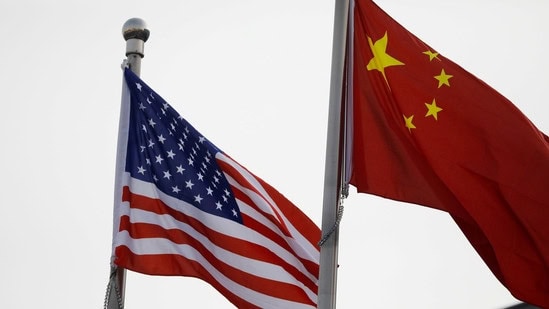BEIJING – China has announced heavy tariffs on U.S. products in response to trade duties imposed by the U.S. a day earlier.
According to foreign media, U.S. President Donald Trump had imposed a 54% tariff on Chinese imports, prompting China to retaliate with a 34% tariff on U.S. imports.
Additionally, China has not only levied tariffs but has also blacklisted 11 American companies, barring them from doing business in China.
China has also filed a case against the U.S. tariffs at the World Trade Organization (WTO).
Furthermore, strict export restrictions have been imposed on seven key minerals, including gadolinium and yttrium, which are essential for medical and electronics manufacturing.
In another retaliatory move, China’s customs authorities have banned the import of American chicken, with all new restrictions set to take effect from April 10.
US TARIFFS SPARK GLOBAL ECONOMIC CONCERNS
President Donald Trump announced retaliatory tariffs on various countries, signing an executive order at the White House, stating that the move would benefit the U.S. economy.
The U.S. has imposed a 29% tariff on Pakistani goods, effective April 9. Other tariffs include 34% on China, 20% on the EU, 24% on Japan, 26% on India, 17% on Israel, and 10% on the UK.
Following Trump’s tariff hike announcement, the U.S. stock market plunged by 1,500 points, marking its worst performance since the COVID-19 pandemic. Western media reports suggest that global financial markets are under severe pressure, with the U.S. market suffering the most.
Trump slaps Pakistan with 29% Tariff on all imports: What does it mean for Economy?














